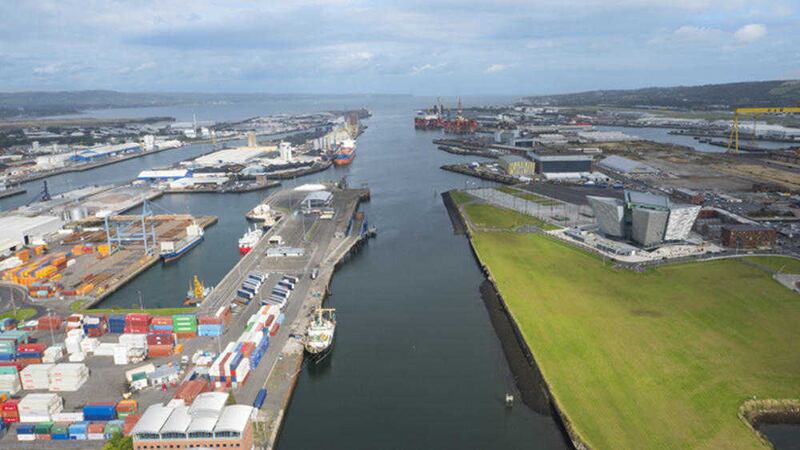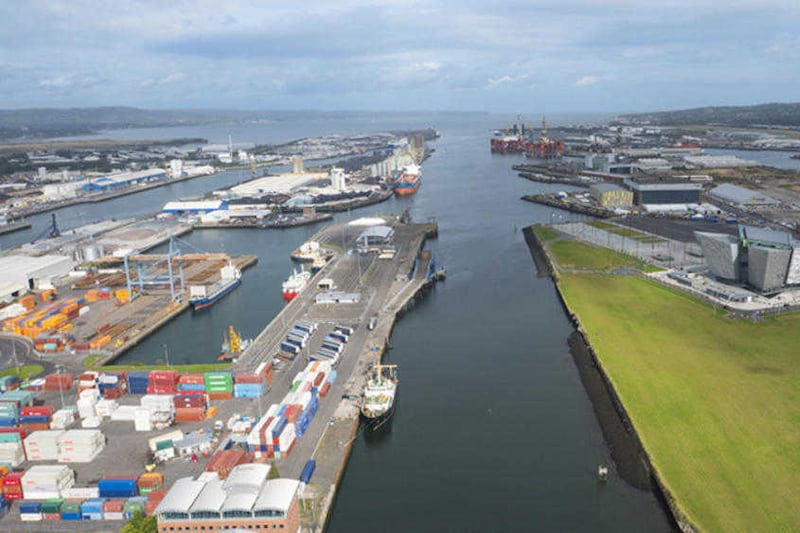BELFAST Harbour handled around 23 tonnes of cargo last year - similar to levels experienced in 2014 which were a record.
The tonnage provides an insight into the state of Northern Ireland's economy with commodities linked to the energy and consumer sectors growing but those related to agri-food in decline.
There was a new record high in the number of freight vehicles passing through the port at 480,000, up 5,000 on the previous year.
Imports of home heating oil grew by 13 per cent to 843,000 tonnes as oil prices fell, driving liquid bulk imports to a five-year high of 2.3m tonnes.
There was also an indicator in an improving picture for the north's exports with stone exports up 6 per cent to 1.5m tonnes and cement product up 84 per cent to 199,000 for the first time since 2008.
Animal feed imports, however, fell back by 9 per cent.
Steel imports were up 6 per cent to 125,000 tonnes, almost three times higher than the recession’s low point of 2009, but container traffic declined by under 2 per cent to 123,000 boxes, suggesting a slight decrease in overall manufacturing activity.
Ferry passenger numbers dipped slightly by 2 per cent to just under 1.4m following three years of growth, while cruise passengers calling at Belfast continued to grow, increasing to 115,000 in 2015.
Belfast Harbour chief executive Roy Adair said: “While the overall figures suggest a steady economic performance for the wider Northern Ireland economy, there have been winners and losers.
"Construction material exports and freight traffic linked to consumer activity have been largely positive, as has been heating oil imports within the energy sector.
“On the downside, international marketplace challenges have negatively impacted Northern Ireland’s agri-food sector, leading to a 9 per cent fall in animal feed imports, offsetting any tonnage gains and resulting in a similar tonnage performance to 2014.
“Overall, though, tonnages are more than seven million tonnes higher than the recession’s low point and our long-term projection is for continued tonnage growth. To support this the harbour progressed a number of projects during 2015, including an upgrade of its roll-on/roll-off and container handling facilities, plus a new cruise ship berth.”
Regional development minister, Michelle McIlveen, said the figures "demonstrate that Belfast Harbour continues to be an anchor point for the Northern Ireland economy, supporting businesses in a variety of sectors".
"It will be increasingly important that the harbour's plans are shaped by the executive's wider priorities. Infrastructure development will be a key driver for the local economy and I’m pleased to note that the harbour continues to invest to facilitate future growth.”



